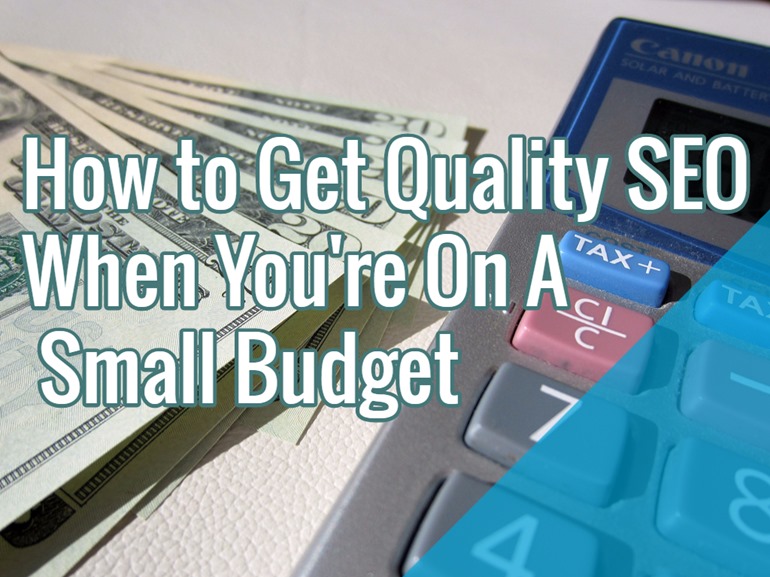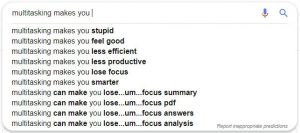Did you know that 571 new websites are created every minute?
By now, every company has integrated SEO into their digital marketing strategy. Not only do they understand the importance of having a strong online presence, but they also work to provide the best experience for their audience while increasing their outreach. From mid-sized companies to multinational corporations, everyone is now heavily relying on good SEO to outshine their competition. But what about startups and small businesses, which may not have the budget needed to get their website properly optimised?
Here’s the deal — you can do SEO yourself if you stick to a few essential practices, and avoid common mistakes that many marketers make every now and then. Check out our guide on self-optimisation below:
1. Choose Your Keywords Carefully
While it’s true that SEO is no longer just about keywords, they are still an important part of every strategy, and you can’t expect to succeed without them. The focus should always be on providing good content that your audience is actually looking for, and not on creating a few pages that are stuffed with your main keyword phrases.
When you do keyword research, keep in mind that:
- Targeting competitive keywords is never a good idea. If you’re a local jewellery store in Sydney, you may be tempted to target phrases like “jewellery Sydney,” “Sydney jewellery,” and “jewellery store in Sydney.” But guess what? There are a dozen other jewellery stores in Sydney, many with their own website, probably targeting the same keywords. Instead of using competitive keywords, focus on real-world searches that relate directly to these terms.
- You need to optimise locally, especially if your business serves a certain geographical location. Target keywords that are geared towards your location — e.g. “jewellery stores in Sydney city centre” or “best jewellery store in Palm Beach, Sydney.” These are real-word searches — and they’re significantly less competitive, so chances are you’ll rank high for them.
The days of keyword stuffing and masking are long gone. As a matter of fact, these are two blackhat practices that could get you penalised by Google, so never go over-the-top with your keyword strategy.
2. Titles And Title Tags
Both titles and title tags can impact how your site ranks in SERPs. Why? Titles show up in search engines and can determine whether or not a user will visit your site. The title is also displayed when the page is shared on social networks.
When you’re creating titles for your pages/blog posts, you must make sure they’re not:
- Too long: Every title should have an average of 8-9 words, or 60 characters, because search engines will cut off longer titles.
- Too short: If the title is too short, it probably doesn’t communicate enough information to your audience, decreasing the likeliness that people will actually click through.
- Irrelevant: If your page is about how to save money on a new car, your title can’t be “10 Best Car Models in 2015.” It’s irrelevant — and whoever clicks through will probably just go back to SERPs and find a site that provides what he’s looking for.
Try using a headline tool like CoSchedule’s Headline Analyser for choosing titles. It’s a nifty tool that helps you keep titles under a reasonable length, deliver a positive sentiment, and boost site traffic.
3. Image Optimisation
So you’ve decided to include images along with every post or page on your website. That’s great — but do you know how to optimise them? Since images aren’t visible to search engines, you need to focus on the following three elements to ensure they’re correctly optimised:
- Alt text — Short for “alternative text,” this element is displayed to search engines, and also to users when the image is not able to be displayed, or the Internet connection is slow. Optimise the alt text for every image with an important keyword that’s relevant to the image/post/page topic so Google understands what the image is about.
- Image tag — An image tag is the text that shows up when you hover the image with your mouse, and provides additional context information. Use a different keyword to optimise image tags, but make sure it’s still relevant to the image/page topic.
- File names — If file names don’t correspond to the alt text, image tag, and context of the image, your page may rank lower than it should. Search engines look for keywords in file names to make sure they’re relevant, so make sure to optimise them as well.
4. Backlinks
Backlinks of any kind used to be great for websites back in 2013 — but with Google rolling out one algorithm update after another, this is no longer the case. Links coming from spammy websites or link schemes (link exchange, paid links, etc) are considered bad — and if your site has them too, then you’ll probably end up being hit by a penalty.
Fortunately, there’s still hope. There are many tools you can use to gather and analyse backlink data, find and fix bad backlinks. Ahrefs, MajesticSEO, and Open Site Explorer let you gather data about your backlinks. Look for links that seem unnatural or spammy, then use Google’s Disavow Tool to remove them.
5. Meta Descriptions
It’s true that meta descriptions are no longer as important as they used to be, but can still have an impact on your ranking. Meta descriptions show up in search results and explain what a page is about — so you’d better make sure each page has one!
Meta descriptions can get more users to your website if they’re enticing, so make them as interesting as you can. Insert one or two relevant keywords, and keep them under 120—125 characters, as that’s the maximum allowed by search engines.
Now that you know the basics of SEO, you can go ahead, prepare your content marketing, and optimise your website even if you’re on a tight budget!
Hand-Picked Related Articles:
- How To Do Keyword Research like a Pro [DIY]
- 4 Ways Local & Small Businesses Can Instantly Boost Traffic
- 5 Essential Local SEO Tools for Marketing a Small Business Online
* Adapted lead image: ![]()
![]() Some rights reserved by 401(K) 2013
Some rights reserved by 401(K) 2013
How To Get Quality SEO When You’re On A Small Budget
The post How To Get Quality SEO When You’re On A Small Budget appeared first on Search Engine People Blog.
Search Engine People Blog(77)











